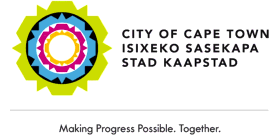 Cape Town reports 35%+ increase in cruise tourism revenue for 2024/25 season
Cape Town reports 35%+ increase in cruise tourism revenue for 2024/25 season
Cape Town’s Cruise Surge Sets New Benchmarks for Economic Growth and Regional Tourism
The 2024/25 cruise season has propelled Cape Town and the broader Western Cape into the global spotlight, marking a period of exceptional growth and opportunity for the region’s tourism sector. With an 18% increase in cruise ship calls and a 16% rise in passenger numbers, the Western Cape’s cruise tourism industry has achieved a remarkable 35% expansion—a performance that stands as the strongest on record for the province.
Between September 2024 and June 2025, Cape Town welcomed 79 cruise ship arrivals, totaling 83 vessel calls. This surge was driven in part by the growing popularity of long-haul world cruises, which accounted for 42 of these calls and further cemented Cape Town’s status as a key fixture on international cruise itineraries.The city’s upgraded cruise terminal and enhanced infrastructure have played a pivotal role in accommodating this influx, enabling the region to host larger and more luxurious vessels.
Passenger traffic soared to 127,000, up from 109,000 in the previous season, fueling increased spending across a range of sectors—from accommodation and retail to attractions and the renowned wine estates of the Western Cape. This uptick in arrivals translated into a significant economic windfall, with combined passenger and vessel expenditure reaching R1.99 billion, a 32% jump from the R1.5 billion recorded in the prior season. The cruise sector’s direct contribution to the province’s GDP climbed to R1.79 billion, up from R1.32 billion the year before, underscoring the industry’s growing importance as a driver of regional prosperity .
Wesgro CEO Wrenelle Stander described the season as a “successful year for Cape Town and the Western Cape’s cruise industry,” highlighting the sector’s critical role in job creation and economic development. The latest industry report reveals that 1,234 direct full-time equivalent jobs were created during the season, with the total rising to 2,345 when multiplier effects are considered. The majority of these positions were concentrated in retail and markets (44%), followed by hotels and restaurants (27%), and tour operators and related services (9%). Nationally, the cruise sector supported nearly 3,000 jobs, with international visitors accounting for almost two-thirds of all passenger spending.
The benefits of this cruise boom have extended well beyond Cape Town itself. Smaller towns such as Mossel Bay, Hermanus, and Saldanha Bay collectively welcomed approximately 32,000 passengers on 26 ship calls, generating R47.5 million in local expenditure. This widespread impact demonstrates how cruise tourism is fostering inclusive growth and supporting businesses across the province. As Stander noted, “What is particularly encouraging is how the benefits of cruise tourism are being felt across the province.”
Western Cape Minister of Agriculture, Economic Development and Tourism, Dr Ivan Meyer, emphasized the cruise industry’s role in strengthening local businesses. “These results highlight its vital role in supporting our world-class restaurants, hotels, wine estates, and cultural attractions. The growth of the sector signals global confidence in our destination,” he said. This sentiment was echoed by Alderman James Vos, Mayco member for Economic Growth, who praised Cape Town’s leadership in Cruise Cape Town and pointed out that each visiting ship injects millions of rand into the city’s economy. “With another record-breaking season behind us, our focus remains firmly on building on this success,” he stated.
Looking ahead, the outlook for the coming season remains highly optimistic, with more than 70 vessels already scheduled to call. The arrival of the luxury cruise ship The World marked the official start of the new season, symbolizing Cape Town’s growing appeal as a premier international cruise destination. V& A Waterfront CEO David Green described the arrival as a “proud milestone for Cape Town,” noting that the city’s cruise terminal is now ranked among the most attractive globally. Each vessel docking at the terminal supports the region’s hospitality, retail, and cultural sectors while showcasing Cape Town as a leading international port.
Captain Alex Miya, Acting Port Manager for the Port of Cape Town at Transnet National Ports Authority, highlighted the cruise industry’s expanding contribution to South Africa’s GDP through tourism, with Cape Town firmly at the center of this growth. The city’s ability to attract and accommodate a growing number of cruise ships is a testament to its world-class infrastructure and the collaborative efforts of stakeholders across the public and private sectors.
For Africa’s travel industry professionals, these developments signal a transformative period for the continent’s cruise tourism landscape. The Western Cape’s record-breaking season demonstrates the potential for African destinations to capture a larger share of the global cruise market by investing in infrastructure, enhancing visitor experiences, and forging strategic partnerships. As international cruise lines and travelers increasingly look to Africa for unique and memorable journeys, the region’s tourism sector stands poised for continued expansion and innovation.
The momentum generated by Cape Town’s cruise success offers valuable lessons for other African destinations seeking to diversify their tourism offerings and stimulate local economies. By leveraging the appeal of their natural beauty, cultural heritage, and hospitality, African ports can position themselves as must-visit stops on the world’s most sought-after cruise itineraries. As the industry evolves, the focus will remain on sustainable growth, job creation, and maximizing the positive impact of tourism across communities—ensuring that the benefits of this dynamic sector are felt far and wide.
